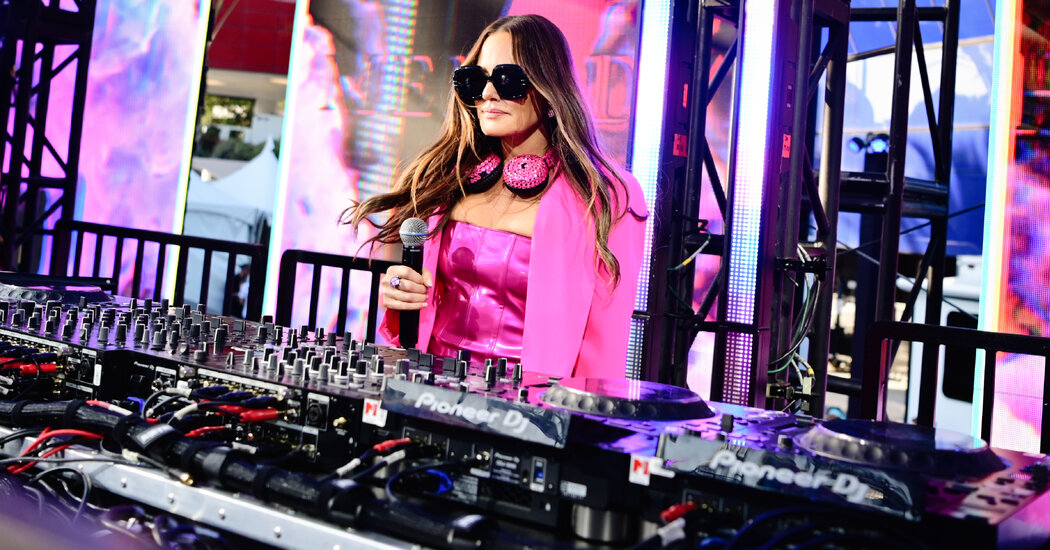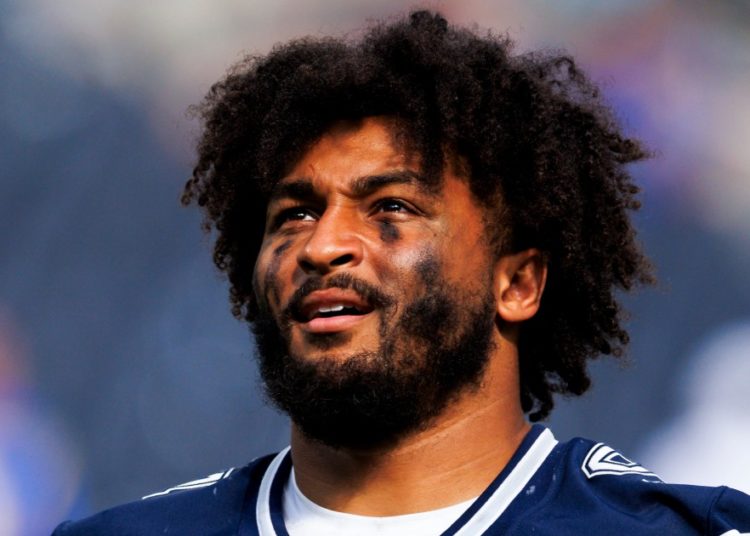On a recent episode of “Next Gen NYC,” a reality show that follows the 20-something progeny of Bravo stars as they navigate life in New York City, the influencer Riley Burruss shocks her mother with a career confession.
“I want to be a D.J.,” she tells Kandi Burruss, a producer, entrepreneur and former star of “The Real Housewives of Atlanta.”
“When you were growing up, we always had this plan: You’re going to be a lawyer one day,” the elder Ms. Burruss counters.
Not anymore.
Riley Burruss appears to be joining the ranks of reality stars who are seeking to add D.J. to their multihyphenate. Ms. Burruss, who graduated from N.Y.U. with a bachelor’s degree in music, has more credibility than most.
Beyond her there is Kyle Cooke, the 42-year-old star of the Bravo show “Summer House,” and a founder of the beverage company Loverboy, who revealed last year that he’s “always wanted to be a D.J.,” prompting derision from at least a few of his castmates. (He recently completed a multicity tour.) In February, Dorinda Medley, a former cast member of “The Real Housewives of New York City,” was the D.J. at a Fashion Week party for The Cut, and last month, Meredith Marks, of “The Real Housewives of Salt Lake City,” spun tunes for a Times Square crowd during Pride.
Gone are the days of model/D.J. Enter: the reality star/D.J.
Rob Principe, who helped found the Scratch DJ Academy in 2002 as a place to teach the art of being a disc jockey, said in a recent interview that it has never been easier to get into the field. He estimates that he has taught more than 500,000 students, but the rise of streaming services, and the creation of software like Serato, has made the whole thing more approachable.
“You had the democratization of music,” he said. “Everybody now can access millions of songs right on any devices they carry with them everywhere, so the barrier to entry got obliterated.”
Mr. Principe said that the students enrolling at Scratch used to come from all walks of life. Now, however, he’s noticed “it’s more early 20s, people that are either artistic by nature, that truly want to learn it like as an instrument and an art form, and then others that are interested in learning it as a kind of a side hustle.”
As a fan of reality TV, Mr. Principe has watched with interest as the Bravo set gravitated toward his field. And though he can’t name names, he said “a significant number of this cohort come to us” and that they fully confess to having booked gigs without knowing how to D.J.
The search for a side hustle make sense. Unless the show in question is a major hit, or the person involved is a longtime cast member, being a reality star isn’t as lucrative as one might think. And the cost of constantly appearing camera-ready can be exorbitant.
Reality stars, as a result, frequently look for other income streams. Some partner with Amazon Live to host shopping events, while others create companies — like Loverboy — that can be pitched on their shows. Being a D.J. opens up their options, allowing them to get paid to host parties and play sets at nightclubs around the country. Mr. Principe estimates a club could pay $1,500-$2,500 for a set, though brand and corporate events would pay more.
For other Bravo stars, being a D.J. has helped them transition out of the hospitality industry. The most commercially successful of the Bravo D.J. bunch is James Kennedy, the former “Vanderpump Rules” bus boy, who — despite being arrested in December on a domestic violence charge — continues to perform at nightclubs and casinos across the country. The budding D.J. career of Maddi Reese, a star of “Southern Hospitality,” and a manager at the Charleston nightclub Republic, was a major plotline on the show this season. Her goal? To eventually get big enough to quit Republic.
Some of the stars are, undoubtedly, in it for the love of the craft, while others are simply hopping on the bandwagon to make a few bucks. But Mr. Principe said that for many in the industry, it doesn’t matter if they have the requisite skills that would be expected from a D.J.
“If they’re enjoying themselves and they’re coming for the experience, who cares?” he said.
He added, however, that knowing your stuff can’t hurt.
“It’s always a more enriching experience as an artist and to connect to your fans if you truly understand the art form so you can be the best ambassador possible for it,” he said.
The post The Rise of the Reality Star D.J. appeared first on New York Times.




